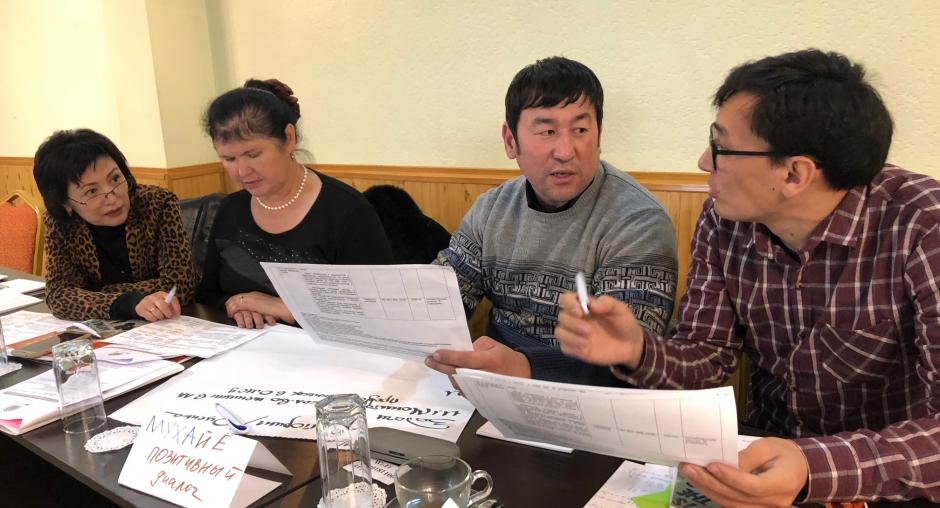OSCE/ODIHR events support civil society’s engagement in implementing Women, Peace and Security Agenda in Kyrgyzstan

Increasing civil society’s potential to partner with state institutions in implementing the recently adopted action plan on the United Nations Security Council Resolution 1325 on Women, Peace and Security in Kyrgyzstan was the focus of two capacity building events, which the OSCE Office for Democratic Institutions and Human Rights (ODIHR) organized in Osh on 12 and 14 November and in Bishkek on 14 and 15 November 2018.
The two events gathered 40 representatives (28 women and 12 men) of human rights and women’s organizations, who discussed the action plan’s provisions, gendered approaches to the oversight of the security sector and ways to become more engaged in the country’s efforts to promote the Women, Peace and Security Agenda.
“Security sector reform processes, political will and first-hand experience of conflict have all been ingredients for advancing the Women, Peace and Security Agenda in Kyrgyzstan,” said Graziella Pavone, Human Rights Officer at ODIHR. “An effective implementation of the Action Plan, the third one adopted by the country, will now depend on the degree of engagement by all stakeholders and on co-operation between state institutions and civil society.”
The participants identified practical areas where they could contribute to the implementation of the action plan. This includes the development of monitoring and evaluation tools, such as indicators and checklists tracking the progress of the plan’s implementation, the provision of expert advice and training to central and local authorities on gender aspects of security and close co-operation with security sector oversight mechanisms, such as national human rights institutions and public councils.
“The experience of women’s organizations in the country demonstrates that NGOs are ready to provide expertise and methodological support to the authorities on policy and practice, both at the central and the local levels,” said Arsen Ambaryan, a lawyer at the Osh-based Positive Dialogue NGO. “However, given the scope of the UNSCR 1325, all human rights organizations can take part in its implementation and work to integrate the Women, Peace and Security Agenda into all their endeavours.”
The events were part of ODIHR’s efforts to promote human rights-compliant and gender-sensitive security, which entails empowering external oversight bodies with knowledge and skills.
Anara Niyazova, professor of law, gender expert and one of the trainers, said: “While not being formal implementers of the Action Plan, civil society organizations can be significant drivers in the implementation process. Acknowledging this role calls for supporting non-governmental organizations, including with resources for their institutional development.”
